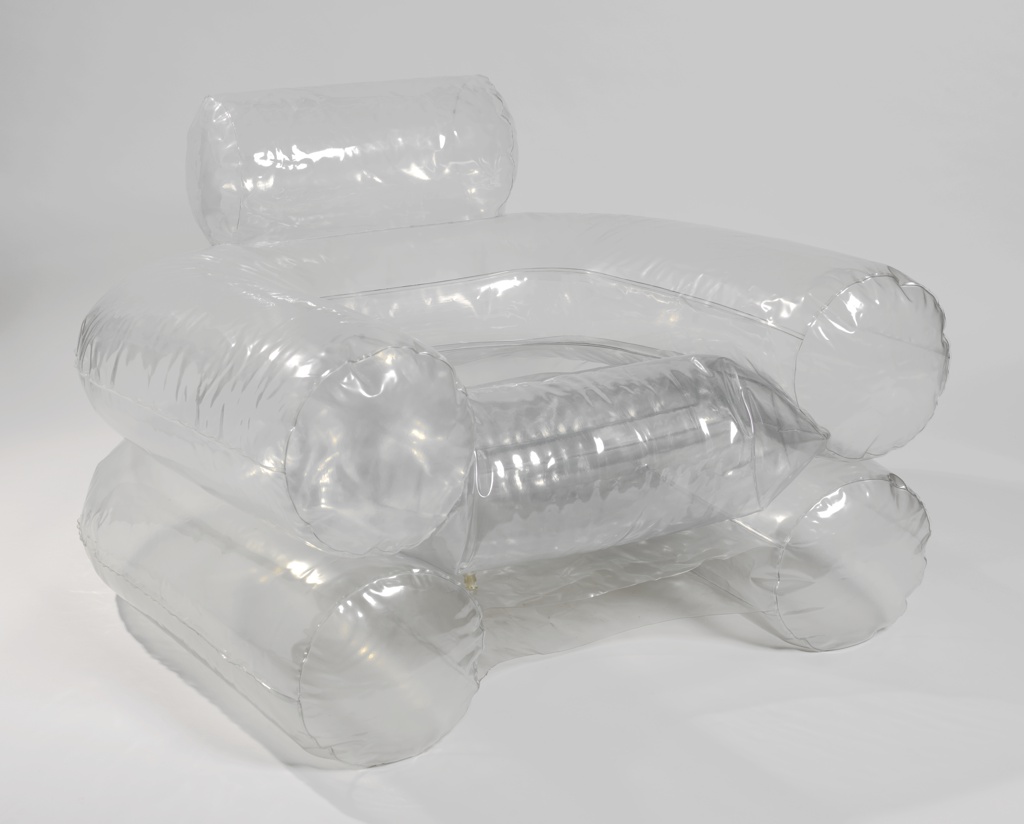Plastic Boom/Plastic Doom
H15:30
Online event
Closed workshop
Information
Biographies
Programme
Image
H15:30
Online event
Closed workshop
I venerdì pomeriggio
The Friday afternoons at Istituto Svizzero are dedicated to our residents. It is an opportunity for the public to learn more about the projects they are working on during this year’s residency.
Plastic Boom / Plastic Doom
Organised by Charlotte Matter (Istituto Svizzero / Bibliotheca Hertziana – Max Planck Institute for Art History, Rome) and Teresa Kittler (University of York)
Italy has been central to the production and manufacture of plastics and synthetic materials in Europe in the postwar period. By the latter half of the 1960s plastics and synthetic materials had become ubiquitous in contemporary art practice and immortalised in the icons of Italian design. This workshop explores the use of plastic and other industrial materials by artists and designers in Italy. How, and why, did artists approach this material? What innovations did it bring to exhibition design in this period? What is the relationship between the use of plastics and other, unusual materials in art? How were such practices received by contemporary art criticism? What reflections did their use prompt about art’s relationship to object-based culture and about their implications for environmental pollution?
In this online study day, we would like to share and discuss current research revolving around the use of plastic in postwar art and design in Italy. Participants are invited to present a paper of max. 20 minutes, followed by a group discussion. The focus of this informal workshop will be on sharing work in process and exchanging feedback. We also welcome proposals for discussions of related (source) readings, to be distributed in advance and discussed during the workshop.
Participation only by signing-up. Please write to Charlotte Matter should you be interested in attending.
Teresa Kittler is lecturer in Modern and Contemporary art at the University of York. Her research focuses on artistic practices from 1945 to present day, with a special interest in Italian postwar art. Since completing her PhD, she has been the recipient of fellowships from the British Academy/Leverhulme, the British School at Rome and the Center for Italian Modern Art (CIMA). Her research on Carla Accardi has been published in the Oxford Art Journal and she has written on Marisa Merz for the catalogue accompanying the exhibitions: Marisa Merz The Sky is a Great Place (Los Angeles Hammer Museum & Metropolitan Museum of Art, 2017) and Entrare Nell’Opera (Kunstmuseum Liechtenstein, 2019). She has also worked as Assistant Curator for the 10 Gwangju Biennale (2014).
Charlotte Matter is currently carrying out doctoral research on the use of plastics in artistic practices of the 1960s and 1970s, with a particular focus on women artists and critics, including case studies on Carla Accardi, Lucy R. Lippard and Lea Lublin. She completed an MA in art history and film studies at the University of Zurich, where she is now a research assistant at the Institute of Art History and coordinates the Master’s program “Art History in a Global Context”. During the academic year of 2019/2020, she is a research fellow at the Istituto Svizzero, Roma and at the Bibliotheca Hertziana – Max Planck Institute for Art History within the research initiative “Rome Contemporary”.

Carla Scolari, Donato D'Urbino, Paolo Lomazzi and Jonathan de Pas, “Blow” Armchair, 1967. Manufactured by Zanotta S.p.A., Italy, double-seamed PVC plastic. Collection of Cooper Hewitt, Smithsonian Design Museum, New York.